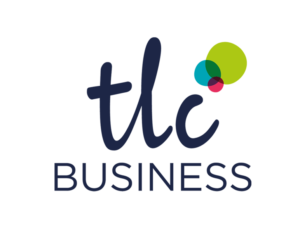Annual ‘Marketing for SMEs’ event enjoys a great turnout
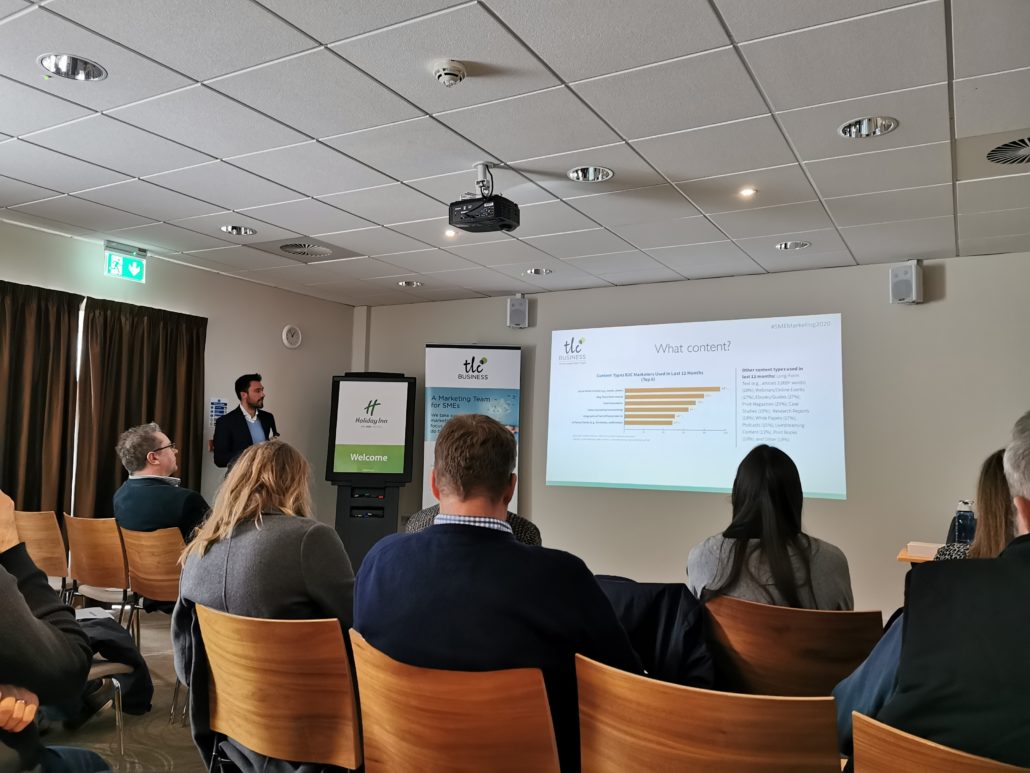

Introduction
Every successful business in 2020 should have a marketing strategy. A marketing strategy will define the marketing channels you will use as a business to reach, connect and engage with your customers and prospects to generate leads. The marketing channels you use should be appropriately chosen to get the biggest bang for your buck and specific to your business and the sector you’re in, but also, your choice should take into consideration your goals as a business. Ask yourself what do you want to achieve through your marketing? Is it growing your customer base and expanding your audience? Is it to generate more leads? Or for customer retention purposes? Whatever your aim is, firstly you must have a good understanding of your market, where you sit in that market and who your audience is, in order to identify the right marketing channels for you.
Where do I start?
First-things-first, a review of your competitors will help you to establish your company’s positioning and determine where you sit in the current market. If the market seems very crowded and everyone (including you) looks more or less the same, offering the same products or services, you need to consider how to stand out (in a good way!) and offer something unique to attract your customers, or as we call it – a USP (unique selling point). Whereas, you might discover you operate in a gap in the market, in which case you have something unique that nobody else is offering.
When you have reviewed your competitors and established your position and any USP you might have, you can then identify your target audience. You may have multiple customer profiles that you wish to target for your business, based around different products or services. You will need to consider your audience’s business type, age, gender, location, sector, job role, interests etc., to have a better understanding of what marketing channels you need to introduce into your marketing strategy. Your audience will also determine the type of messaging you use and what your marketing should look like.
You should use your review of your competitors to assess what marketing channels and techniques other businesses are using, as well as to find out which ones they are using well and which are not so effective. For example: what is their website like? Are they publishing new content regularly? Are they using social media? If so, which platforms are they using and how often are they posting? Do they send a newsletter? Have they got re-marketing ads set-up? Do they have pay-per-click adverts on Google? And so on. This will benefit you when you come to planning your marketing strategy and deciding which channels and techniques you should be using or could be doing better on, as well as which ones to avoid.
What’s next?
There are a multitude of effective marketing channels and techniques you can use within the B2B sector to connect with customers and prospects, but before you jump into doing all of them at once, you should create a marketing plan and select the channels that are going to be the most cost effective and beneficial for the results you want.
A marketing plan will also help you to plan for the costs and resources associated with each component and establish whether you will need to hire someone or outsource a marketing specialist to help you. Remember, just because one competitor might be doing everything, this does not mean you should and doing so could be a major waste of your time and money. Find what works for your business.
Some examples of marketing channels to consider for your 2020 strategy
To explain further, we’ll be putting together a series of informative blogs focusing on different marketing channels you could consider, including website & content creation, all things Google (SEO, paid search and remarketing), email marketing & telemarketing, social media and last but not least offline advertising and direct mail.
Keep an eye out on our blog and follow us on social media to make sure you don’t miss which channels will be best for you, to help you deliver your 2020 marketing strategy!
Josh Spencer, Managing Director of TLC Business and Chartered Marketer, is interviewed for Ask the Expert on BBC Radio Solent, discussing all things Marketing!
Last Friday, some of the TLC team were invited to play golf at the well-renowned Ferndown Golf Course!⛳️

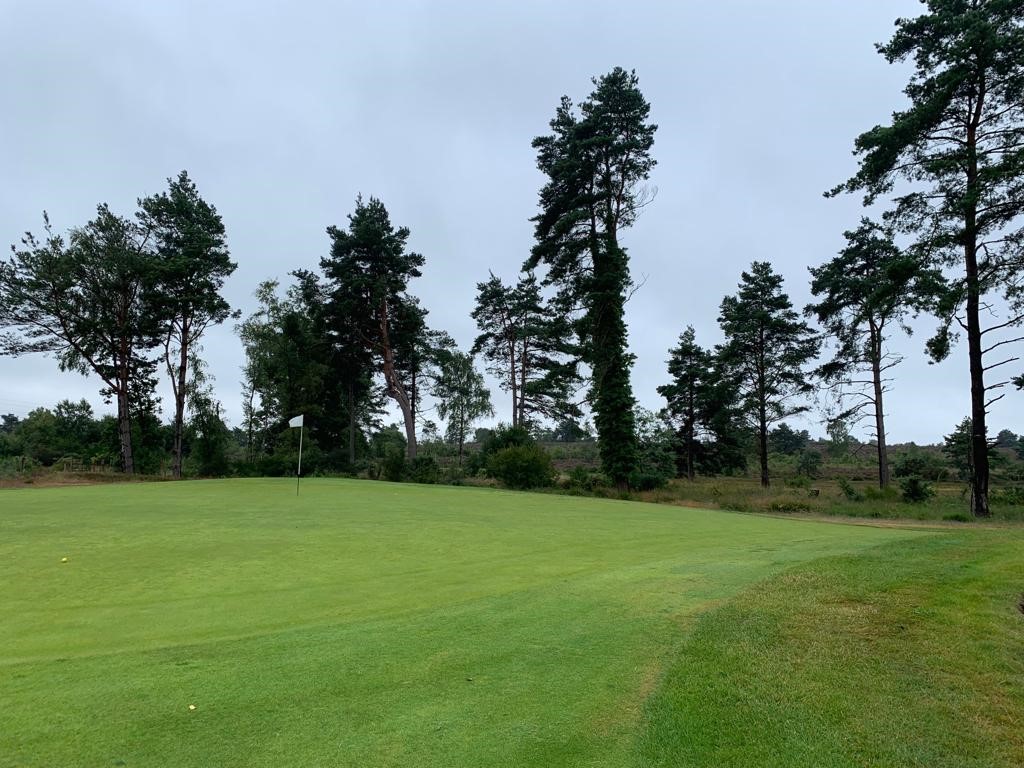
Last Friday, the TLC team visited Snowdonia National Park for a challenging climb up Mount Snowdon. The team had a very early start leaving from the office at 5am Friday morning and arrived at the starting point of the ascent for the PYG track at approximately 11am. Lots of sun cream and water was needed to keep us hydrated and protected from the very hot and sunny weather, which made the climb extra challenging at times. After approximately 3.5miles of ascent, the team made it to the summit at approximately 2pm where we took a break to enjoy some lunch and admire the views. We then set off for the descent at approximately 3pm via the Miners Track and made it back to our coach at 5pm to return back to the office! Here are some pictures from the day!
A formal definition of content marketing might go something like this – a strategic marketing approach focused on creating and distributing catchy, relevant and consistent content to attract and retain a defined target audience and help generate profitable leads. Put simply, it is creating and distributing fun, engaging, powerful and moving content that captures your audience’s attention and compels them to do something. Content marketing should be an ongoing process within your overall marketing strategy; however in the B2B market, very few businesses are executing it to its full potential and are missing a cost-effective marketing trick!
What is the ‘content’ in content marketing?
Content marketing revolves around the production of original or curated mixed-media, then distributing it through your different marketing channels, such as website, email or social media. Some typical examples of the type of content you could produce are:
• Blogs
• Case studies
• Video
• Social media posts
• Podcasts
• Webinars
• Infographics
• GIFs
• Quizzes/Surveys
• Competitions
• White Papers
• Resources, for example glossary of terms, calculators, price lists, generators etc
• Apps
Content marketing benefits for lead generation
Other than SEO, PPC and other online advertising methods, blogging is considered the most effective tool for B2C and B2B marketers for generating leads through online channels. Did you know that according to statistics by WebDAM, B2B marketers who blog consistently generate 67% more leads than marketers who don’t? So if you don’t have a blog or news page, you might want to consider getting one! However, the content you are putting out needs to be relevant and engaging for your specific audience in order to see results. Different types of content will generate different outcomes based on their purpose. You might create content to increase brand exposure or your social media following. Perhaps you are looking to inform your audience or existing customers about new projects or industry insights. Your choice of content should be specific to your goals and distributed through carefully selected channels tailored towards your audience.
Create a content plan
In order to produce consistent and good quality content, we suggest creating a content plan as part of your marketing strategy. A content plan will highlight any activities in relation to your content and give you a schedule to work towards to help keep on top of things! We’ve got some helpful tips to create your plan.
1. Whether you’re new to content marketing, or are looking to improve your existing content, firstly we’d recommend looking at your competitors to see what types of content they are producing, if any, and if it is effective or not, to get some ideas for your own. Useful things to look out for are use of links to their website or to external articles, use of hash-tags, and the engagement they receive including likes, comments and shares. Just remember that whilst It is helpful to get inspiration from your competitors, it can be difficult to come up with original ideas that have never been done before, so make sure you avoid copying content and that yours is unique, your own and reflective of your business.
2. Firstly, you need to choose the types of content you wish to create and your goals, for example, social media posts can be great for brand exposure and increasing your audience reach, whereas case studies and white papers can be used to target industry or solution-specific prospects through a lead-gen email campaign.
3. Establish how much content you can create and how often, given your resources and time. A social media post can be created in several minutes, whereas a white paper can take hours to produce.
4. Lastly, you will need to decide how you will be distributing the content. The majority of content will be hosted on your website, but you can then decide if you will share it on social media, include a feature and a link in your e-newsletter or create a targeted email campaign to prospects or for existing clients.
5. Implement all of the above into a content calendar and schedule posts where applicable using social media managing software such as Hootsuite or Sprout, so that you remain consistent, avoid duplication and can plan weekly or monthly themes and topics that fall in-line with your business model.
Content marketing benefits for SEO
The more up-to-date your website is, the more beneficial it is for your user and SEO; therefore, adding new content to your website, such as regular blogs, video, resources, graphics, case studies or white papers can help improve your search engine rankings. Video is increasingly relevant and in demand by users; therefore, having embedded video on your site is a big plus. Content is also a good medium through which to target new keywords, expanding your presence in the search engines, so your audience can find you more readily.
How can we help?
At TLC Business, we can take care of all of your content marketing requirements. Need help with social media management, creating engaging blogs and white papers or producing infographics or resources for your audience? Get in touch today by emailing us on info@tlc-business.co.uk or calling 01962 600 147.
Search Engine Optimisation (SEO) is the process of making changes to your website in order to improve your online visibility in a search engine’s organic results, otherwise known as unpaid or natural results. The factors which affect your website’s search engine rank have changed over the years, due to Google’s (and other Search Engines) continual updates to their algorithms; therefore, continually reviewing your SEO activities is crucial to ensure you appear prominently on the search engine results page (SERP).
Did you know that 75% of people don’t scroll past the first page of search results and 70%-80% of people skip straight past paid ads completely and to the organic results? Therefore, even if you are using pay-per-click (PPC) ads; which generally appear at the top and bottom of the results page and marked ‘Ad’ next to the URL, the majority of online users will ignore your ad and skip straight to the organic results, where you may not appear if your website is not optimised effectively.
How can I find out where my website is ranking?
If you want to see where your website is ranking on a search engine, we don’t recommend you perform a search of your business yourself as it is likely that you will not get an accurate representation of where your website ranks for a number of reasons:
To check your website’s SERP ranking correctly, there are a number of free or paid tools you can use. Our recommendation is Serpfox, they offer a free account for up to 10 keywords or paid plans from $10 a month. Other quick online tools which don’t require an account or subscription include Moz Rank and SERPChecker, but there are a variety of others available which also provide keyword idea tools and the ability to check your site’s ranking against your competitors.
What factors affect my search ranking?
There are a number of factors which will affect your website’s organic search ranking, some of which aren’t new and have been best practice for years, but others are becoming increasingly more important as Google continues to update their algorithms almost every day.
Keywords
A search engine recognises search terms as ‘keywords’ and will look for these keywords on your website to see if it is relevant for that search. The use of keywords for SEO has changed slightly over the years as it’s no longer feasible to throw a bunch of keywords onto your website in the copy or H1 tags. The basic rule is to choose one unique keyword per page to tell the search engine what that page is about. You can use free online keyword tools such as Google’s Keyword Planner, WordStream or Wordtracker to find keyword ideas and their search volumes. Most tools will also show the PPC competition and cost-per-click (CPC), if you decide to use the keywords for paid search ads too. To benefit from full SEO, the keyword you have chosen for that page should be included in the meta data and on the website page itself (in the first H1 tag and at least once (possibly more) on the page text, ideally in the first paragraph). You can also include it in the page URL and alt tags. All of these placements will help tell search engines what your pages content is really about.
Meta Data
Meta tags are bits of text that describe a web page’s content; however, they don’t appear on the web pages themselves, only in the page’s HTML code. A search engine reads the meta data to find the topic of the web page and check for the relevance of your web page against a particular search term. Each page of your website should have a unique meta title and meta description. This will tell the search engines the name of your page and what it is about. To effectively write meta data for your website, your meta title and descriptions for each page will have one main keyword in it that is relevant to that page. The meta data is also the title and description which will display on a search engine’s results. For example, I have searched “SEO tools” in Google and one of the top organic results was this page link for Moz (see image below). You can see that the keyword “SEO tools” is in the meta title; therefore, Google has recognised that this is a relevant web page for my search term.

In order for your meta tags to display correctly, your title should be no longer than 50-60 characters and your description no more than 150-160 characters in order for Google to display your page listing without getting truncated.
Page URL
Search engines will also check your web page URL for relevance to the search term, therefore in addition to your meta tags you can include your chosen keyword for that page in the website’s or page’s URL to help improve your ranking.

Content
Updating your website regularly with new content will help to improve search engine results too. Content can be anything in the form of copy, blogs, video, resources, graphics, infographics and more. Video is also increasingly relevant and in demand by users; therefore, having embedded video on your website is a bonus for your SERP rank. Using keywords in your website’s copy such as blogs and case studies will also help to improve search results and you can also label your images and other media using alt tags, which work similarly to meta tags and give the search engine further information about your website’s content.
Mobile-Friendliness
Over 50% of web traffic in the world is now on mobile and mobile users are increasing dramatically year-on-year; therefore, it is vitally important for websites to be mobile-friendly. Google can recognise how well your website performs on a smaller device and will rank your website accordingly. It will check your website for its responsiveness, accessibility, loading speeds and user-experience on mobile. You can check if your website is mobile-friendly by using Google’s Mobile-Friendly Test.
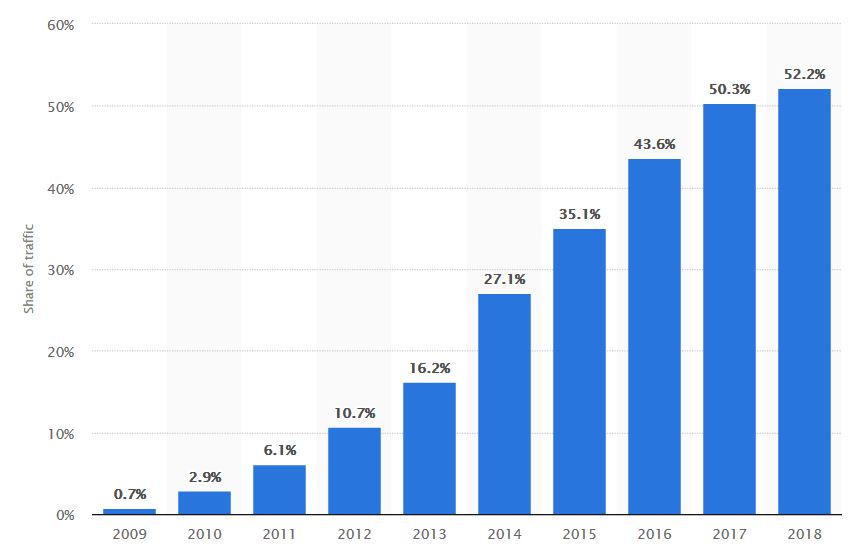
Image source: https://www.statista.com/statistics/241462/global-mobile-phone-website-traffic-share/
User-experience
In addition to mobile-friendliness, you should still ensure that your website performs well on desktops and tablets too. If your website has a lot of java-script, high-resolution images, video and links, these factors can affect a website’s page load speed; which will have a negative impact on your search rank. You can check how your website performs in this area using free online tool, GTmetrix; which gives you a score for your website’s page speed and will also provide you with smaller scaled images or ‘smushed’ images to replace those on your website, without compromising quality.
You should also check your website for broken-links in case you have changed any of your website’s page names or URLs historically. Old links from your website may still show up on search results or may be linked from other website and need re-directing, otherwise your website will show a 404 error page, which also negatively impacts user-experience. To check your website for any broken links, you can use the ‘Crawl Errors’ report under Google Search Console’s webmaster tools.
Another thing to consider which can impact your ranking is your website security. In 2014, Google confirmed that websites with an SSL certificate would get an added advantage in the search engine results and last year sites with a non-HTTPS status would be flagged with the warning message “Not secure” in the URL bar of the browser to show that it was unsafe. If your website is http:// instead of https://, you should consider purchasing an SSL certificate from your web hosting company. An SSL certificate will help to minimise the chances of cybercrime and hacking that is often targeted through security loopholes in web browsers. You should also check that you are using the most up-to-date version of your CMS or PHP. If you are using WordPress for example, in 2018 official guidance was released that you should run PHP 7 or higher, which not only provides improvements in handling errors and script problems but improves your website’s security and makes your website harder to hack.
Google My Business
Finally, if you haven’t set up your own Google My Business account, it is possible that Google has created one for you. This is the business and address listing that shows for your business. For example, when searching “Winchester restaurant” in Google search, I am given several listings of restaurants and a map. If you utilise this tool to its potential, it can have positive effects on your SERP ranking. You can edit your listing to include images, a description, opening hours, contact information, a link to your website, directions and reviews. A listing with positive Google reviews (all things being equal) is more likely to rank higher in Google’s search engine results than a listing with poor reviews or no reviews at all. You can set up a Google My Business listing or request ownership of one that exists for you by creating an account here.

How TLC Business can help
TLC Business can undertake a variety of SEO-related activities for SMEs including a review of your website, creating an SEO strategy, setting up Google Analytics and Search Console, keyword research and analytics, meta-data creation, on-page and off-page optimisation and more. You can find out more about our SEO services (make this the link) on our website, or get in touch by emailing info@tlc-business.co.uk or calling 01962 600 147.
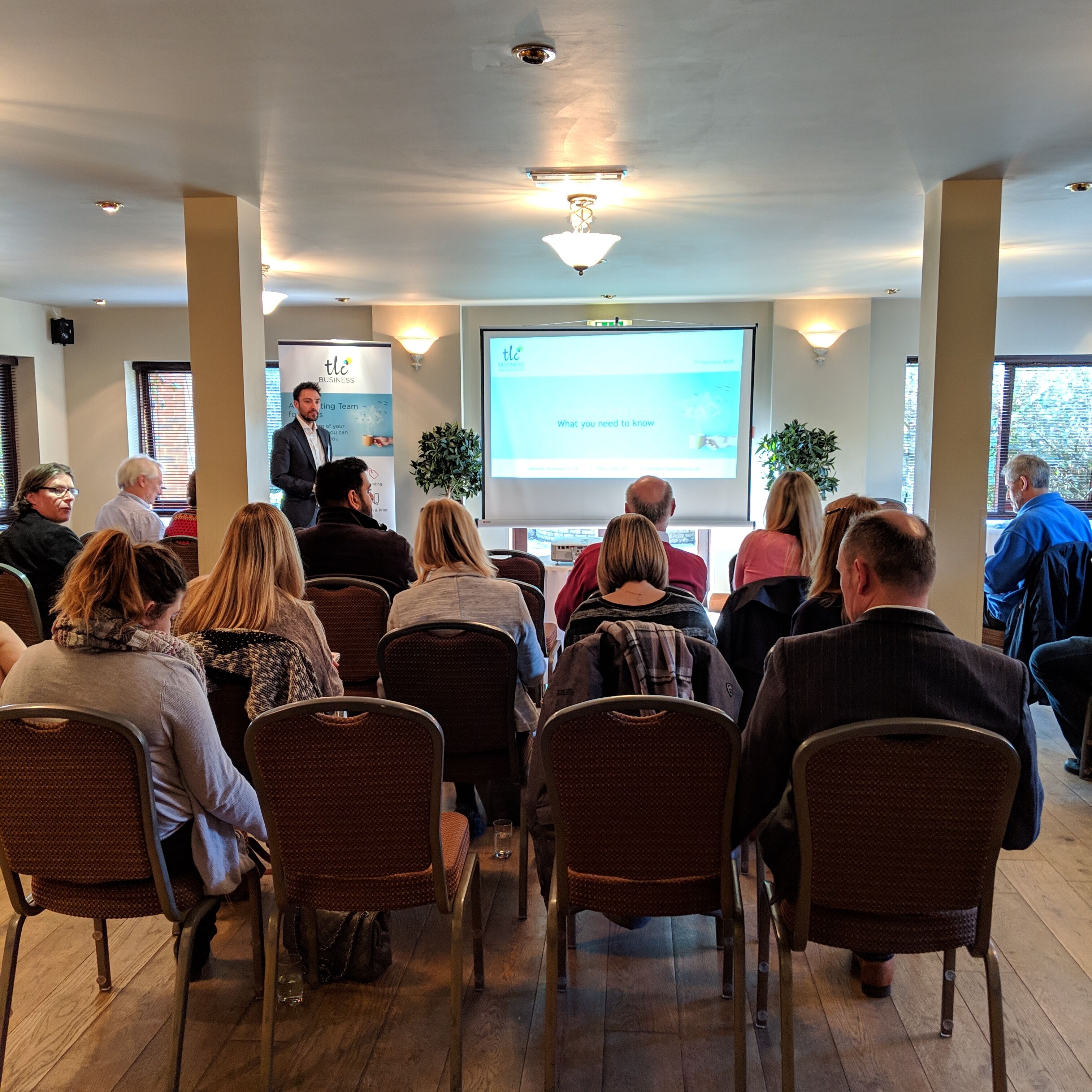
TLC Business would like to thank all of the attendees who came to our annual marketing lunch last Thursday 7th February at the East Horton Golf Club in Fair Oak. We hope you enjoyed the session and were able to take away useful information and tips to help with your marketing in 2019.
During the seminar we discussed hot marketing topics, trends and tips for 2019; including which marketing channels are most effective for SMEs, updates on GDPR and the ePrivacy regulations, how to get the most from social media, PPC advertising, SEO best practice and more.
The event attracted a wide-array of SME businesses from in and around Hampshire, including IT consultants, architects, HR trainers, engineers, legal services and more.
If you’d like to be informed about future marketing events or availability of our free marketing ideas sessions for SMEs, let us know by emailing Sophie at sophiewells@tlc-business.co.uk or give us a call on 01962 600 147.
